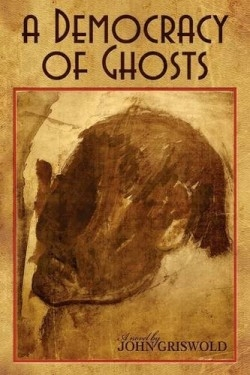A Democracy of Ghosts
- 2009 INDIES Winner
- Silver, Historical (Adult Fiction)
“In the souls of the people the grapes of wrath are filling and growing heavy, heavy for the vintage.” Steinbeck’s quote is the farmworkers’ equivalent to what brews in A Democracy of Ghosts, John Griswold’s fictional depiction of the Herrin Massacre of 1922, a bloody battle between miners and strikebreakers that caused the deaths of twenty-one men-nineteen of them scabs-and cast a dark shadow of shame over Illinois.
Griswold explores the tense moments before the massacre and its aftermath through the lives of four couples: James and Mercy O’Rourke, Bullyrag and Sally Greathouse, William and Cora Sneed, as well as Sneed and his mistress, Shelly Brown. The novel is drawn from historical documentation, news accounts, and eye-witness sources, including letters belonging to Griswold’s grandfather. He combines them with a spare and poetic prose style. He is able to describe the most violent scenes with the lyricism of Steinbeck and he can effortlessly shift into the stark beauty of narrative like Truman Capotes In Cold Blood.
As in The Grapes of Wrath, many of Griswold’s characters are immersed in the tunnel vision of their survival. They are absorbed in day-to-day living but are still aware of their status as tiny parts, moored and socio-economically stagnant, in the engine of a larger corporate machine. Reluctant to change, they defend their position from anything or anyone that might alter their status quo. Ridicule, torture, murder, or any combination thereof, are acceptable norms to deter change. The crowd taunted and spit on the six bleeding men until a consensus was reached that they should be forced to crawl down Stotlar Street to the cemetery a mile away as a symbol of something, Griswold writes. …it took forty minutes to cover that mile in the humidity and heat, and the wounds of the six bled openly…Jeremy Brown unfolded a clasp knife…knelt next to each body lying in the grass in the graveyard and slit the throats. The knife was dull.
But Democracy of Ghosts doesn’t get caught up in Steinbeck’s inclination towards melodrama and moralizing. Readers may therefore uncomfortably identify with the characters in Ghosts precisely because they are not bigger than life. They’re neither saints nor sinners, but they possess the qualities of both. The characters are liars, cheaters, killers, torturers, and opportunists; at the same time, they are loving, humorous, protective- in other words, human.
Reviewed by
Lee Gooden
Disclosure: This article is not an endorsement, but a review. The publisher of this book provided free copies of the book to have their book reviewed by a professional reviewer. No fee was paid by the publisher for this review. Foreword Reviews only recommends books that we love. Foreword Magazine, Inc. is disclosing this in accordance with the Federal Trade Commission’s 16 CFR, Part 255.

